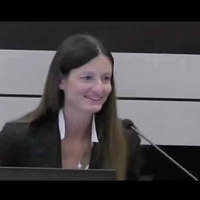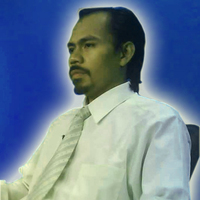
Mary Anne Franks
Dr. Mary Anne Franks, J.D., D.Phil, is a Professor of Law and the Michael R. Klein Distinguished Scholar Chair at the University of Miami. Her areas of expertise include cyberlaw, First Amendment law, Second Amendment law, family law, and criminal law and procedure. Dr. Franks is an Affiliate Fellow of the Yale Law School Information Society Project and a member of the American Law Institute. She is the author of the award-winning book, The Cult of the Constitution: Our Deadly Devotion to Guns and Free Speech. She is also the President and Legislative & Tech Policy Director of the Cyber Civil Rights Initiative, a nonprofit organization dedicated to combating online abuse and discrimination. In 2013, she drafted the first model criminal statute on nonconsensual pornography (aka “revenge porn”), which has been used as a template for laws in multiple U.S. jurisdictions, and served as the Reporter for the Uniform Law Commission’s 2018 Uniform Civil Remedies for the Unauthorized Disclosure of Intimate Images Act. Dr. Franks regularly advises legislators and tech industry leaders on issues relating to the intersection of technology and civil rights. Dr. Franks holds a J.D. from Harvard Law School as well as a doctorate and a master’s degree in Modern Languages and Literature from Oxford University, where she studied as a Rhodes Scholar. She previously taught at the University of Chicago Law School as a Bigelow Fellow and Lecturer in Law, and prior to that at Harvard University as a lecturer in social studies and philosophy.
less
Related Authors
Judith L Green
University of California, Santa Barbara
David Seamon
Kansas State University
Daniel O'Keefe
Northwestern University
Robin L Hill
University of Edinburgh
Iris Žeželj
University of Belgrade
Tom Willans
Independent Researcher
Berta Martini
Urbino "Carlo Bo"
deni darmawan
Indonesia University of Education
Pedro Serra
University of Salamanca
Patamaporn Thaiposri
Nakhon Pathom Rajabhat University










Uploads
Papers by Mary Anne Franks
Social and legal understandings of injury play a key role in structuring society. They shape our sense of moral obligations to each other, help us assign blameworthiness, and govern how our collective resources – economic, psychological, and political – are to be distributed. In particular, judgments about injury determine allocations of risk and responsibility in society. Accordingly, distorted assessments of the quality, nature, and significance of injury can have serious consequences. In social and legal systems characterized by “injury inequality,” injuries affecting the powerful are exaggerated, while those affecting the vulnerable are downplayed. This is a serious cause for concern for several interconnected reasons. First, overinflated claims of injury do violence to the concept of injury itself, warping society’s collective understanding of harm. Second, injury inequality preserves the lion’s share of resources for addressing the injuries of the privileged, leaving little for those already less equipped to cope with injury. While elites can expect that their injuries will be accommodated in the structure of law and society itself, the marginalized must make do with self-help.The effect is not limited to economic, legal, or physical resources, but extends to psychological resources: injury inequality discourages empathy and compassion to the harms suffered by the less powerful. This results in legal and social practices that reinforce an unjust and perverse allocation of risks, burdens, and benefits. Such practices send social messages that directly conflict with a commitment to equality across race, gender, and class. At a minimum, outsized solicitude for elite injuries creates indifference to marginalized injury. In the worst case, such solicitude affirmatively promotes marginalized injury as a sacrifice necessary to preserve the interests of the powerful. This article focuses on three categories of legal and social norms in the United States that demonstrate the harms of injury inequality: justifiable use of deadly force, freedom of speech, and sexual assault.